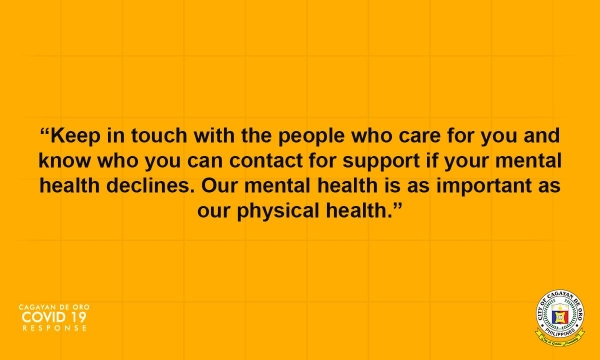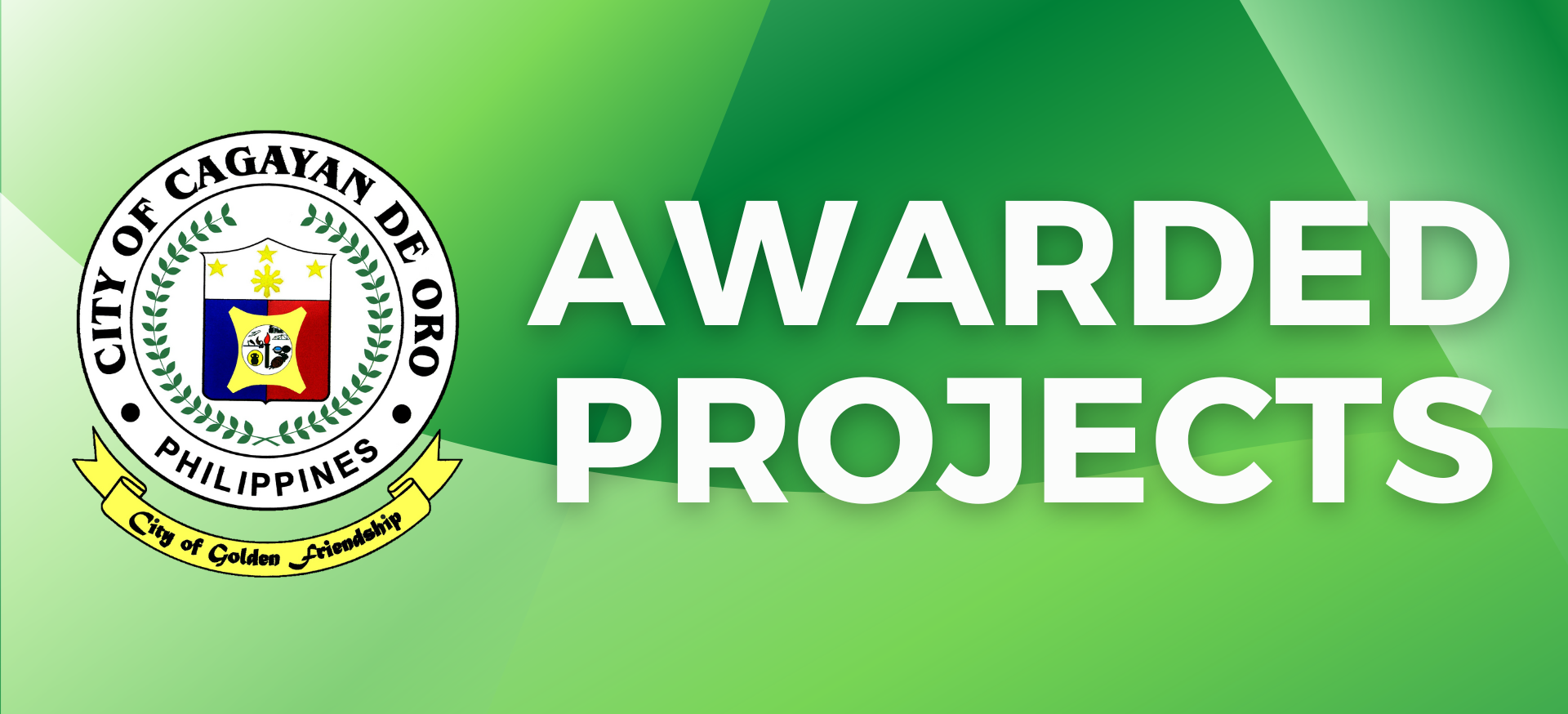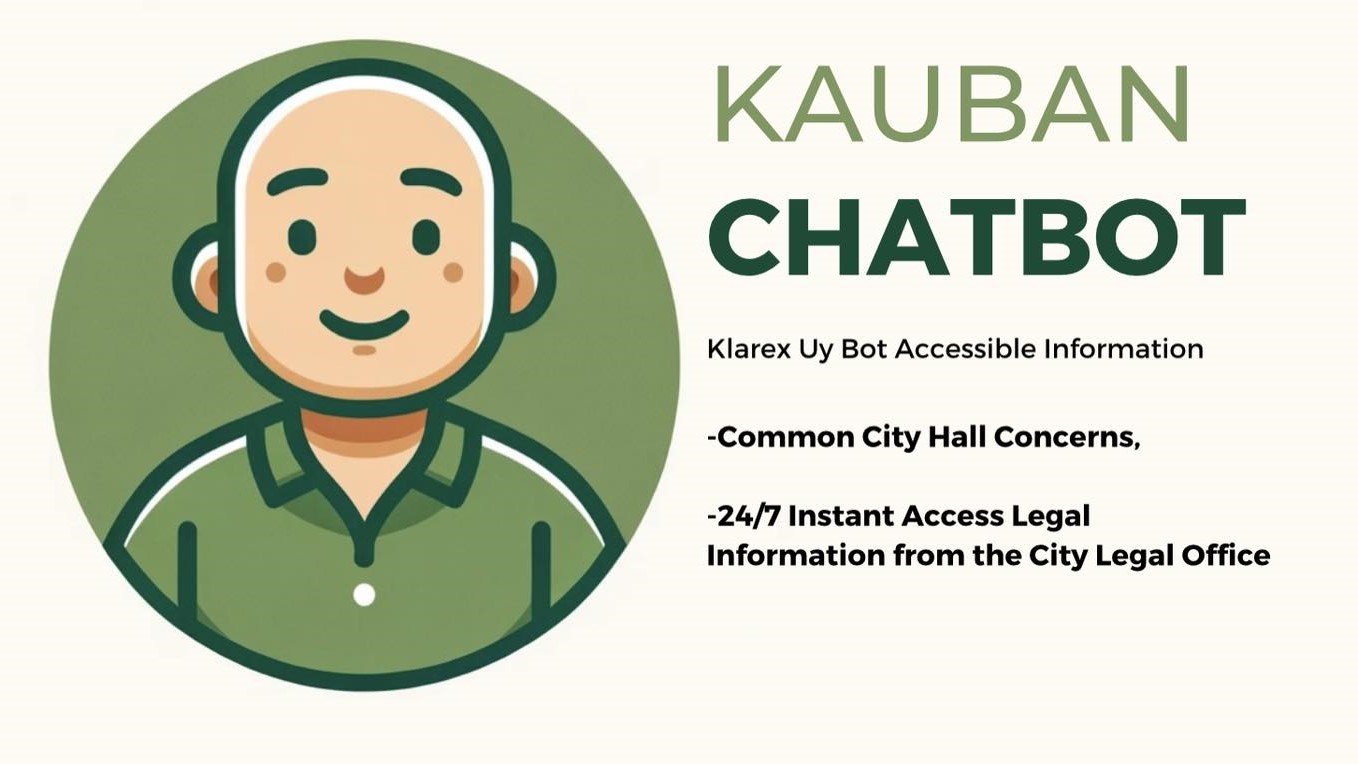(Note: This is an opinion piece by Phoebe Mae A. Juanico, a Graduate School student from the University of Science and Technology of Southern Philippines.)
The novel coronavirus pandemic has swept all over the world, instilling fear, threatening our own health and the health of our loved ones. As a daughter, wife, and mother, this pandemic made me anxious and it has caused me to panic. I know for a fact that our healthcare system would not be able to handle if there would be an overwhelming number of infected individuals.
How can I protect the people I love? How will we survive? Will this come to an end, anytime soon? A lot of things ran in my head when this all started. I even had difficulty sleeping and it destroyed my sense of focus for a couple of days. Then it hit me: How will I pull through if I will not change the way I think? How will I protect my family if I will succumb to fear?
Everyone reacts differently to stressful situations. According to the Center for Disease Control and Prevention, the outbreak of COVID-19 may be stressful for people. Fear and anxiety about a disease can be overwhelming and it can cause strong emotions in adults and children. Coping with stress will make you, the people you care about, and your community stronger.
I have to change my perspective, the more I fuel my head with negative thoughts, the more I suffer. A person must not just focus on physical health to survive this pandemic. A healthy mind and a positive outlook are also essential. It continues to be challenging since there’s isolation due to quarantine, I cannot move around and visit my family and go out with friends to ask for comfort; this made me even sadder. Being sad would only add up to my anxiety, so I had to manage the rising panic in my head and took a deep breath.
In one of my readings, I found out that a pandemic is a rare - and for most of us, new – phenomenon. It is beyond any single person’s control, and so it can be overwhelming for some. It naturally triggers anxiety.
Pandemics have in fact been beaten in the past by scientists, by governments, by all nations, and by all sectors working together. Knowing that should give us a sign of relief. Remain as calm as possible and start focusing on things that you actually have control of. A person must have control over his body. Practicing good breathing exercise helps.
Engaging in healthy activities could also be a remedy. Healthy activities can include your personal rituals of hygiene, fixing, and managing your surroundings, establishing daily routines – all within the bounds of “social distancing,” of course. If you’re a green-thumb, you can actually make planting or gardening a hobby; it’s satisfying once you see them sprouting and growing and it’s sustainable, too.
Since I cannot have physical contact with my loved ones, I stayed connected with them. In these trying times, advancement in technology is bliss. There are different social media platforms you could use to be able to reach the people you love. I also have my kids and husband with me so I made most of the available time with them.
I have also been more discerning to consuming news about the pandemic. I realized that even though we wanted to be well informed about what’s happening around us; too much information also can add up to anxiety. Some mental health associations and organizations recommend building a news reading or watching routine that takes place just once or twice a day. Of course, avoid fake news. Make sure to read or watch only from credible sources such as the World Health Organization (WHO) and the local health authorities.
According to WHO, fear is a normal reaction in situations of uncertainty. Keep in touch with the people who care for you and know who you can contact for support if your mental health declines. It is very important that one must take good care of his mental health. Our mental health is as important as our physical health.
 World Health Organization
World Health Organization Department of Health
Department of Health 

















